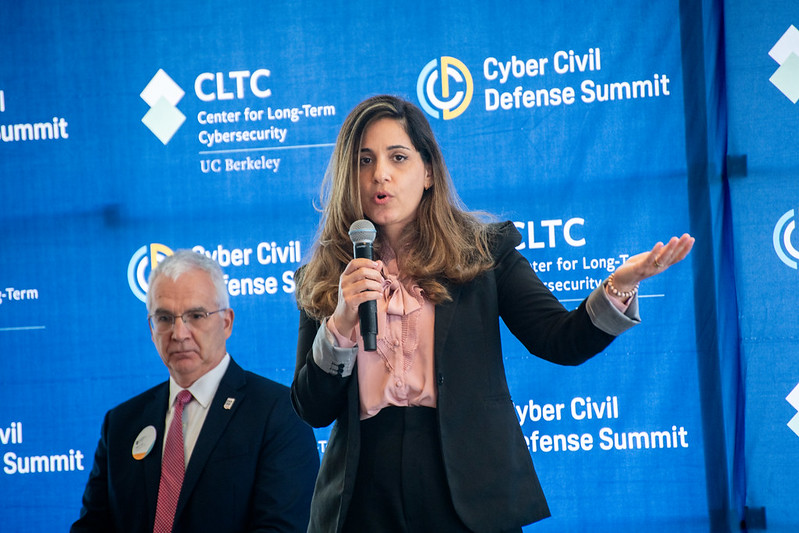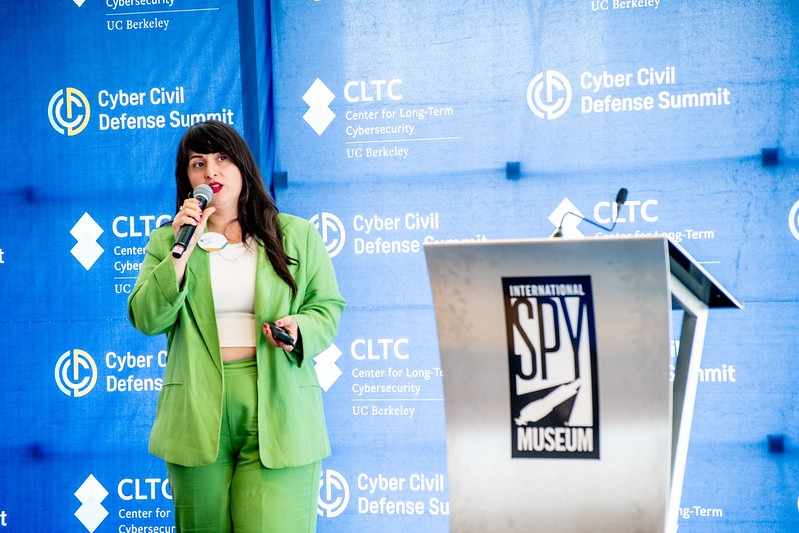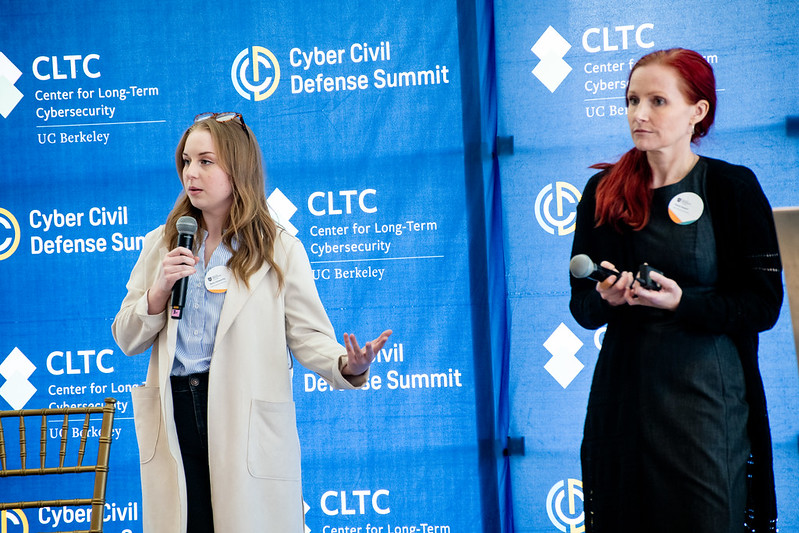After last year’s Call for Papers (CFP) success, the UC Berkeley Center for Long-Term Cybersecurity (CLTC) is thrilled to once again solicit proposals for public-interest cybersecurity research.
Selected projects will receive subsidized travel and lodging to present their work in person at the third annual Cyber Civil Defense Summit, held in Washington, DC, in June 2025.
The Challenge
Without targeted interventions, cyber threats risk entrenching and deepening existing social and economic disparities, creating a self-perpetuating cycle of digital vulnerability and marginalization.
Addressing these issues requires a comprehensive and multifaceted approach that combines research, community empowerment and systemic change.
The disproportionate impact of cyber threats on vulnerable communities represents a critical yet understudied area in cybersecurity research. Current research heavily focuses on adversarial tactics and technical solutions, leaving a significant gap in understanding how these threats affect marginalized populations and how to develop equitable cybersecurity policies and practices.
Research Paper Guidelines
This CFP calls for research that seeks to answer an empirical research question in the discipline area of Public Interest Cybersecurity.
What is public-interest cybersecurity?
Public Interest Cybersecurity is a field of research focused on studying the cybersecurity challenges and needs of public interest organizations that often fall through the cracks of cyber defense – namely nonprofits, state and local governments, small utilities, hospitals, and school districts. They are often described as “target-rich, resource-poor” organizations which fall “below the cyber poverty line”.
These organizations provide essential services that our society depends on, and cyberattacks cause them real-world harm including service disruptions, draining limited funds from core missions, and sowing mistrust in the communities they serve. These organizations often lack the budgets and cybersecurity expertise necessary to adequately secure and defend the technology utilized by their organization.
More specifically, we are interested in paper proposals that:
- Explore a topic that contributes to the cyber defense of under-resourced organizations in the United States, such as nonprofits, state and local governments, small utilities, hospitals, or school districts.
- Incorporate some type of quantitative data analysis (Not required, but proposals that do will receive special attention)
- Culminate in a final paper that is between 3,000 to 6,000 words long
- Aligns with the theme of this year’s Summit: Collaborative Advantage: Uniting Forces to Achieve More (Not required, but proposals that do will receive special attention)
Need an example? Review the projects we funded last year to get a sense of the kind of work we’re looking for here.
Timeline and Funding
Selected projects will be invited to present their findings alongside our curated sessions at the 2025 Cyber Civil Defense Summit. Papers that are presented at the conference will receive a $2,000 honorarium, and 1 to 2 researchers per paper will receive airfare and accommodations support to attend. At the discretion of CLTC and the author(s), selected papers may also be published as CLTC white papers.



What is the Cyber Civil Defense Summit?
The Cyber Civil Defense Summit is an annual one-of-a-kind gathering of cyber defenders, academics, and policymakers with the shared mission of protecting the most vulnerable public infrastructure against cybersecurity threats. This in-person event hosts exclusive keynotes and panels with government and industry leaders in cybersecurity, creating an intimate space for cross-sector conversations between academics, volunteers, and policymakers on how we can work together to protect vulnerable community organizations.
The Cyber Civil Defense Summit was first hosted in 2023, with keynote addresses by CISA Director Jen Easterly and Wendy Nather of Cisco. Full write ups of the 2023 and 2024 attendance and panels can be found here. The conference is a unique opportunity to connect with cyber defenders across industries, and get ideas in front of beltway changemakers.
Applications close on Monday, February 3, 2025 at 11:59pm PST.
Timeline
| Applications Due | February 3 |
| Decision Notification | February 10 |
| Research and Analysis Period | February 10 – May 31 |
| Paper Outlines Due | April 7 |
| Practice Presentation | First week of June |
| Final Paper Due | June 10 |
| Present Final Paper at the Cyber Civil Defense Summit | Week of June 9 (Official date TBA) |
Application Requirements
- Researcher(s) name, contact information, and affiliation
- Researchers’ CV or Resume
- Session/Paper abstract (250 words max)
- Public Interest Cybersecurity Alignment Statement (50 words max)
- Need Statement (50 words max)
- Paper Timeline
Who should submit a proposal?
We invite paper submissions from cybersecurity professionals across all sectors—academia, industry, and government. CLTC aims to use this CFP grant as a catalyst for public-interest projects that might otherwise lack support. The Cyber Civil Summit prides itself on being a grassroots event that spotlights a diverse mix of up-in-coming and well-seasoned researchers and practitioners who are making meaningful contributions, but may not often have the platform to share their work, via panels, keynotes, and presentations. We especially encourage submissions from first-time speakers and early-career researchers!
Eligibility
We will accept paper proposals that:
- Come from individuals, or small teams of researchers (1-4 individuals)
- Propose new, unfunded research; We also accept updates to ongoing work, but will not be as highly prioritized
- Come from US-based research teams; International research teams may apply, but will not be as highly prioritized due to budget limitations
- Come from researchers who are available to travel to Washington, D.C. in-person to present their work
Please Note: Sales pitches, advertisements, and for-profit product demos will be rejected.
Have questions about your application? We encourage researchers with questions about their eligibility or paper topics to reach out to Shannon Pierson (spierson[at]berkeley.edu).




